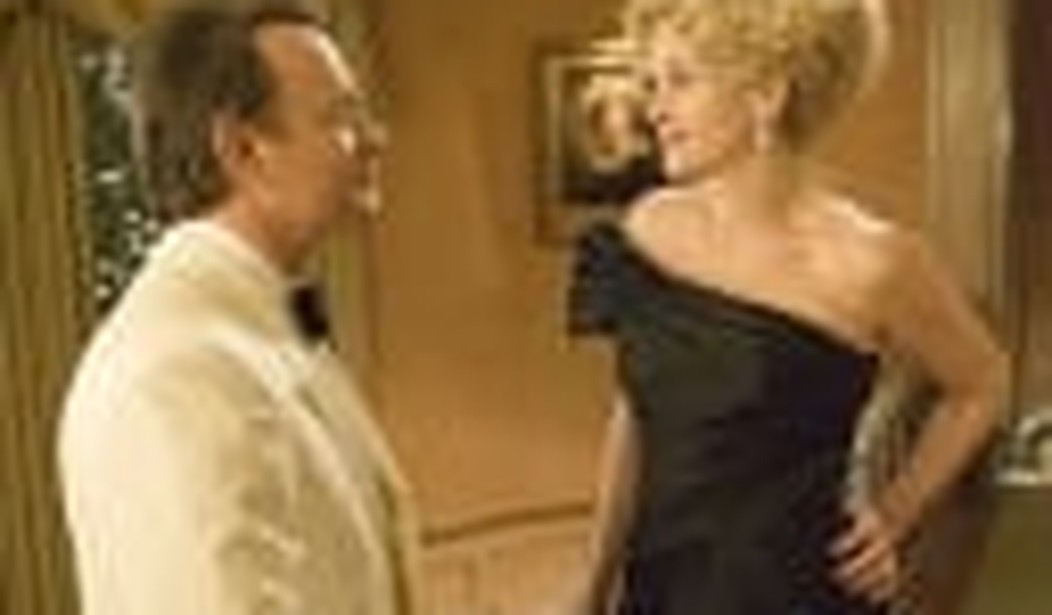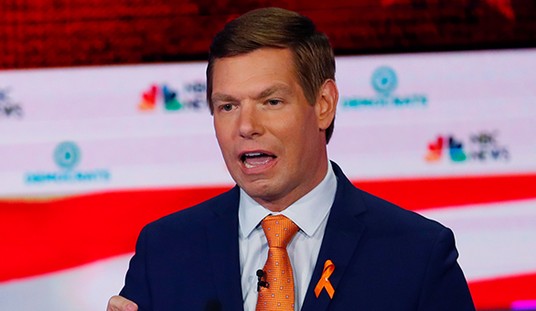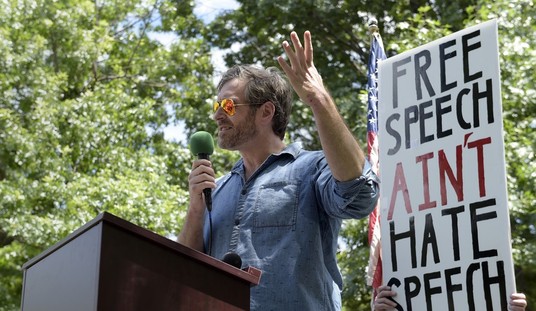I somewhat enjoyed Charlie Wilson’s War, but I’m glad I don’t have any money invested in it. It would be exaggerating only slightly to call it The Congressional Record meets “Ishtar.”
How strange is this film? So strange that there aren’t really any stakes for the main character. So strange that pages and pages of dialogue float by trying to convince you to care whether the 1981 covert ops budget for aid to Afghanistan’s mujahideen fighting the invading Soviets was $10 million or $40 million, or how many T-55 tanks the Soviet invaders used. So strange that Democrats are shown killing Commies. Not calling for sanctions against them; not filing paperwork against them in the U.N.; not calling for investigations of how their prisoners of war were treated: just getting them in the crosshairs, and pow.
Tom Hanks, doing a low Elvis drawl, plays the real-life Texas Congressman Charlie Wilson, who at first appears to be the usual Hollywood parody of Southern lawmakers. He’s a degenerate who snorts coke (though not onscreen; this is the actor, or rather the brand, Tom Hanks we’re talking about). He consorts with strippers in hot tubs and staffs his Washington office with heaving cleavage he refers to as “jailbait.”
But screenwriter Aaron Sorkin plants an early scene in which Wilson refuses to defend a creche on municipal property, which clues us in: Wilson is a secular Democrat, which in a Hollywood political film means heroic. So his Bubba-ness-“You can teach ’em how to type, but you can’t teach ’em how to grow tits,” is one of his aphorisms–is meant to be a charming quirk, not a sign of a diseased soul as it would be in a screen version of a conservative lawmaker.
A lot of Sorkin’s lines are funny: “I’m on the other side of that issue,” says Charlie. “Ethics?” is the response. Yet the movie generates only scattered laughs. Hanks’ mumbling tends to dampen the jokes, and it’s a habit picked up by Philip Seymour Hoffman as an abrasive but savvy CIA man transferred to Langley’s Afghanistan desk as the Soviets are invading in 1980.
For all of his one-liners, Charlie truly cares both about dealing a blow to the Soviets and about the suffering of the Afghans under Soviet domination. So he cooks up a scheme to help the mujahideen, and in some of the movie’s best scenes Sorkin’s trademark rapid-fire dialogue explains how: Wilson can’t just send American weapons. He needs weapons that could plausibly have been captured from the Soviets. Israel has just such a cache of confiscated weapons, but that would mean putting Israel and the Muslim countries on the same side of the covert war. Meanwhile, Charlie is getting support in the bank, and in bed, from a friend described as both an extreme right winger and “the 6th-richest woman in Texas” (Julia Roberts), a fund-raiser and party-thrower who hates Commies and loves Jesus in equal measure.
What’s lively and fresh about the film is that it feels truer than most Washington movies, which tend to portray politicians as either scoundrels or steely-eyed heroes. Director Mike Nichols, who made Primary Colors, presents a D.C. where smart and well-meaning people, some of them slobs in cheap suits, do the best they can considering competing forces.
But the film is historically suspect-why is there hardly a mention of Ronald Reagan? And it’s dramatically aimless. As Hanks and Roberts and their jokes hop from Cairo to Houston to Islamabad, the movie at times seems like many another tiresome international caper that mistook frequent-flier mileage for a storyline. For every sharp one-liner, there’s a paragraph of detail-clogged pedantry about the process.
The movie would not have been made were it not for the moral in its closing minutes: American adventures overseas can have unpredictable effects. Sorkin makes the point nicely, with a tale about a zen master, but being clever and being right are two different things. Sorkin all but says that a few million U.S. bucks for schools in Afghanistan after the Soviet war would have prevented 9/11; yet the U.S. for decades has done everything for Saudi Arabia but send it flowers on Mother’s Day. None of our efforts prevented that rancid kingdom from nursing most of the 9/11 hijackers.
Kyle Smith is a film critic for the the New York Post. His website is at www.kylesmithonline.com.









Join the conversation as a VIP Member